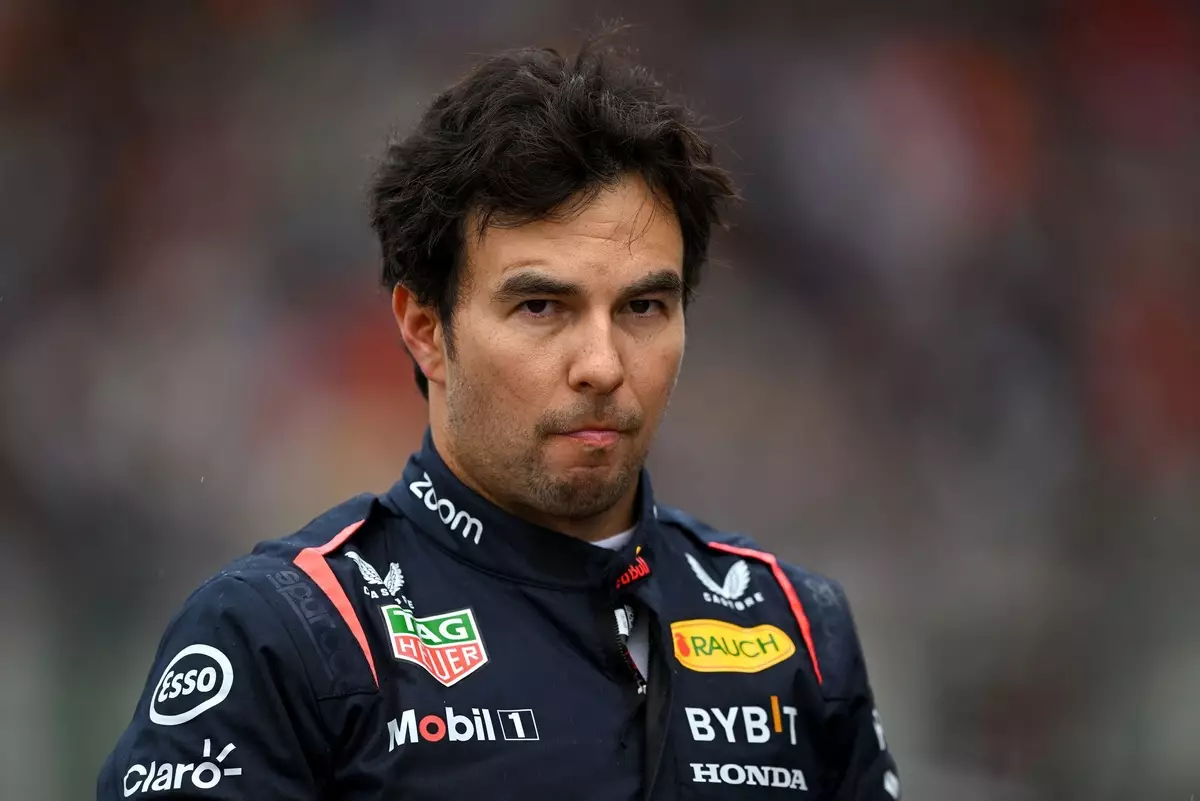Formula 1 is often described as the pinnacle of motorsport, a fierce battleground where performance is rewarded and failures are condemned. However, amidst the glory and high-speed pursuits, the psychological strains faced by drivers can become burdensome. Sergio Perez’s recent remarks shed light on how Red Bull Racing, a team known for its dominance on the track, contributed to an anxiety-ridden atmosphere that ultimately undermined his performance. Perez argues that the undue pressure exerted by the team not only negatively affected him but also trickled down to his entire support crew, leaving a toxic residue that disrupted their synergy.
The notion that Perez felt unsupported by Red Bull is not a trivial point; it raises questions about the moral responsibilities of top-tier organizations. According to Perez, even with a two-year contract extension secured at Monaco, the constant chatter surrounding his job security crafted an environment fraught with tension. Rather than shielding Perez from mounting external pressures, Red Bull seemed to exacerbate them, placing an emphasis on results instead of offering composure and reassurance. As competitive sports often temper the mental fortitude of players, it verges on reckless for any organization to overlook the well-being of their athletes.
The Fall of a Star
One must consider the implications of Red Bull’s decision-making during this pivotal phase of the 2024 season. Instead of acting as a protective barrier, the organization shifted their focus to constant scrutiny of Perez’s performance, creating an unhealthy cycle of blame. The shift in attention undoubtedly translated to tangible consequences; as Perez points out, everyone from the engineers to the pit crew felt the weight of this anxiety. A driver’s performance can be stifled under such intense scrutiny, leading to a phenomenon where every misstep becomes magnified.
Even more troubling is the fact that Perez’s successors, Liam Lawson and Yuki Tsunoda, found themselves immersed in a similar predicament, struggling to match the stellar performances of their championship-winning teammate, Max Verstappen. Their inability to accumulate points efficiently offers an unsettling reflection on how a toxic environment leaves its mark long after an individual has exited. Red Bull, in their quest for supremacy, may have sacrificed the collective spirit of their garage, compromising team dynamics in favor of cutthroat individualism.
Rethinking Team Loyalty
It’s riveting to hear Perez state that Red Bull expresses remorse for their decision to sever ties with him. While one might find solace in their latter regret, it nudges at a critical question: Is it too little too late? Perez’s exit may symbolize Red Bull’s fleeting grasp on the notion of loyalty, especially when business decisions overshadow moral ones. The unraveling of a potentially successful collaboration speaks volumes about the high stakes in the sport, but it also mirrors a lack of foresight within the team.
With the departure of renowned designer Adrian Newey, Perez argues that the team’s trajectory began to skew significantly. Newey’s absence highlights the fragility of success, showing how one figure’s exit can throw established systems into disarray. It illuminates the stark differential between the brands thriving due to strong leadership, innovative design, and disciplined performance compared to those that get mired in internal strife and disagreements.
The Future of Formula 1 Dynamics
As Perez navigates this chapter of his career—one marked by a hasty exit and a revealing retrospective—we must acknowledge the broader implications for the sport. F1, while glamorous, demands a holistic understanding of both driver and team dynamics. Mental fitness has become integral to maintaining performance levels, and it is universally acknowledged that an athlete thrives best in supportive environments rather than under clouds of paranoia and uncertainty.
For teams like Red Bull, fostering an atmosphere of collaboration rather than competition within their ranks may be crucial in redefining their future trajectory. As Perez continues to reflect on his experiences, it emphasizes the urgent need for sports organizations to prioritize mental health and create environments where all members—drivers and engineers alike—can flourish together rather than crumble under pressures that the sport has long perpetuated.


Leave a Reply